
By Rebekah Lattin-Rawstrone
Tuesday 15th June was a beautiful summer evening, perfect for sharing the dazzling work of our 15 Novel Studio 2021 students via zoom. The Showcase is the culmination of a year’s work on their novels and with genres as varied as satire, sci-fi, procedural crime and literary fiction, this year’s cohort promised a varied and tantalising programme of extracts from their work-in-progress.
This is the first year of the Novel Studio which has been run entirely virtually and it has led to a wonderfully diverse group with students joining us from India, France and America as well as the UK. The students have forged a tight-knit group, challenging each other in an incredibly supportive and encouraging manner, leading to some truly fabulous work being produced as we soon heard.
After running through the amazing list of published alumni, that grows year on year with names like Kiare Ladner, Harriet Tyce, Deepa Anappara, Hannah Begbie, Elizabeth Chakrabarty, Attiya Khan, Anna Mazzola and Greg Keen, we heard from alumna Harriet Tyce who introduced and funded the Novel Studio Scholarship in 2019, which provides one successful applicant from a low-income household with a fully funded place. We are delighted the scholarship is running again for the third time this year.
Harriet spoke with fondness about her time on the Novel Studio and all that it offered her in terms of structure and support. She also spoke of her sense of anxiety waiting to share her work at the Showcase and wished all the students luck. Hopefully they will all go on to have writing careers as successful as Harriet’s.

Nana Wereko-Brobby
With some thank yous to all the tutors, Kiare Ladner, Emma Claire Sweeney and Rebekah Lattin-Rawstrone, alongside our director Emily Pedder and the Short Courses team, in particular Laura Bushell, Robert Lastman and Sathya Mathivanan, we were ready to be transported into the various fictional worlds of the students starting with Nana Wereko-Brobby whose novel, Dark Heart explores one British Ghanaian’s journey into boredom, excess and murder. Reading from the first chapter, Nana gave us an insight into her character’s acerbic attitude to his daily life and relationships that left us wondering what else might be in store.
We went from London to a village in Tamil Nadu next as Deepa S. read from her novel, Nivya, a coming of age novel in which twelve-year-old Nivya must come to terms with a more complex understanding of her world and heritage. Narrated by Nivya, Deepa read us a passage that introduced her uncle’s latest business venture, the tuk-tuk Henry.

Freya Sanders
Freya Sanders took us into a young woman’s mind next when reading from her literary anti-bildungsroman, out of the sky. We learnt about the tragic death of Peter Gilbraith, a popular, high achiever whose death is all over Facebook. What will this mean for the character, her friends and the wider social circle? What importance do external achievements have in the face of death?
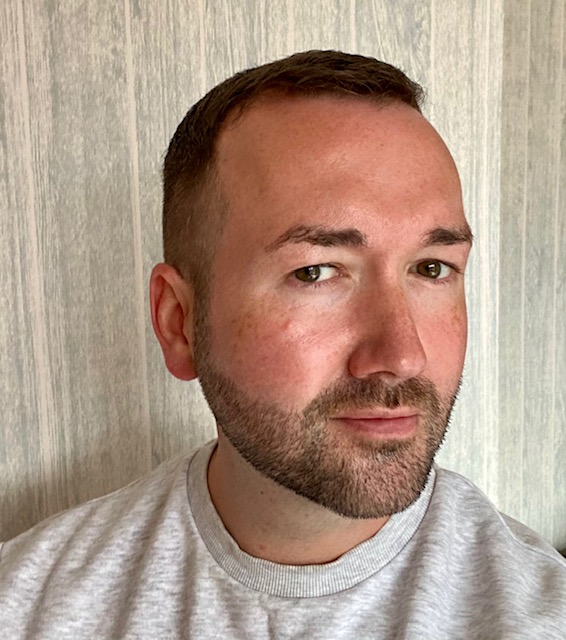
Michael Lawson
From Cambridge to British Airspace next, Michael Lawson took us into the mind of Blanche, an undead agony aunt and political agitator who died choking on a custard cream in an airplane sitting next to her best friend, Cilla Black. A hilarious satire sending up the British and their political system, Michael’s extract from Biscuits with Blanchehad the audience giggling in delight.

Scholarship winner Janice Okoh
We were dropped right into the action in a large house in Nigeria next as Novel Studio Scholarship 2021 winner, Janice Okoh, read from the beginning of her novel, The Killing Season. Olori’s daughter is missing. She went out with the bosses new British Nigerian wife who Olori does not trust at all. Where is her daughter? Who will help her find her? Certainly not the police, or so it seems. Leaving us on tenterhooks, reeling from the pithy phrases of Olori’s mind, we were transported into an entirely different character’s mind next.

Stephan Schmidt
Delving into the head of a young man who wishes he’d already written the Next Great American Novel, Stephan Schmidt shared an extract from his novel Abscondia in which his second person narrator described meeting a woman at a cafe in France. Seeped in skepticism and nihilism, will this woman mean anything for the unnamed narrator, or will it just be one more in a catalogue of disappointingly mundane events?

Rhiana Gold
We were transported into the near future next as Rhiana Gold read from her speculative fiction novel, Under the Surface. We joined her character, Stevie, at the hospital, there for her dying father, a father no one like her – a lab-born – usually has. What is a lab-born and how is Stevie different? You’ll have to wait for the full novel to find out!

Seema Clear
Seema Clear took a different look at identity and belonging next, as she read from her multigenerational novel, The Refugees, that explores the life of Vidya and her father who were some of the many Asians expelled from Uganda in 1972. Seema read from the opening of her novel in which Vidya is back in the family home in West London, tending to her father on his deathbed.
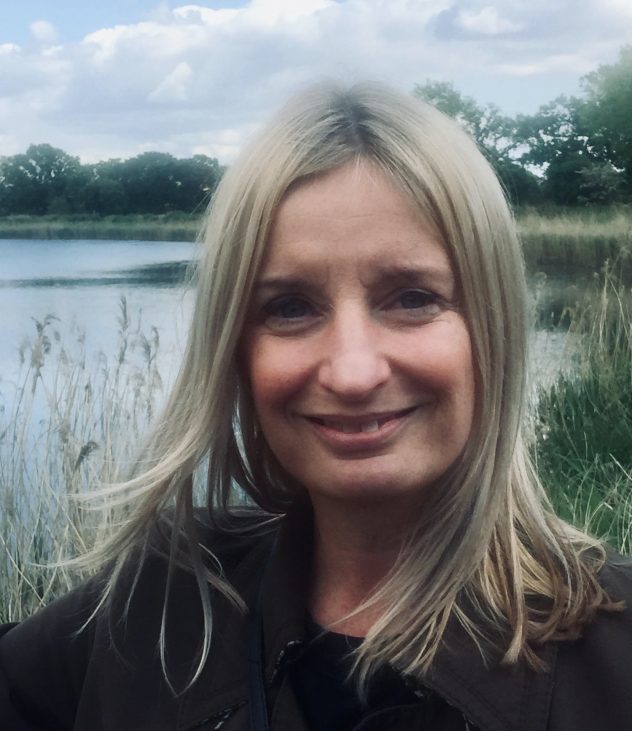
Lucy Blincoe
From one set of emotional waters to another, we travelled to the Cornish coast with Lucy Blincoe next as she read from her novel, Kernow. Susie is a Met detective on leave, taking time out from London after the death of her colleague ostensibly to spend more time with her teenage daughter, Nancy. Then Nancy finds a dead body washed up on the beach. Susie thinks the young man won’t be her problem to solve, but the audience all knew better.

Grayson Anderson
We were blasted into the distant regions of an alternative galaxy next as Grayson Anderson read from the first in a trilogy of science fiction novels, Until Time Runs Out: The Awakening. We joined Aluz as she attempted to persuade her superiors to let her keep a perfectly preserved body found on a long-dead planet while mining. Drawn in by the sharp dialogue and Grayson’s fabulous voices, the audience was left wondering about Aluz’s discovery and what it might mean for her future.

Catherine Till
Time traveling into the past rather than the future next, Catherine Till took us on a train ride as her character attempted to travel illegally across the border and out of Soviet-controlled Hungary, as she read from her novel, Behind The Curtain. Leaving us with our hearts beating in our mouths, fear sounding loud in our ears, we were left to imagine whether her character made it or not.
Back to London and the world of environmental protest, government cover-ups and organised crime, James Mott read from his novel, The Holloway Men next. He introduced us to his main character, DI Robert Bramadisso, just back from a year’s suspension whose first job is to babysit City boys. How could that possibly go wrong?

Vasundhara Singh
We went back to India next with Vasundhara Singh whose novel, mistress, mother, explores the lives of three women: the wife and mother, the daughter and the mistress. Taking us into a scene of shared memory and food, we followed each bite with careful and lyrical attention.

Nola D’Enis
Continuing the lyricism, we journeyed to a small French town next as Nola d’Enis read from her novel Doulun. We joined her for the opening pages as one of her characters, Judith, explored the treasures of her underwear drawer and revealed a little of the steely femme fatale that lies beneath the frills.

Rhydian Wynn Davies
Finally, we were thrown into a scene of rich drama as Rhidian Davies read from his novel, Role of Lifetime, in which his two main characters, ex-actor Oliver Molyneux and solicitor-agent, August Avery, talk about Oliver’s impending divorce. Both narcissists, the extract from this tragi-comic novel introduced us to a world where these men and their impulsive actions might take them into deeper water than either of them expected.
The readings ended with a fantastic revelation, taking the death knoll high and our emotions higher. With final thanks and reminders about students’ contact details in the chat and in the anthology now available here, the Showcase for the Novel Studio students 2021 was concluded with a marvellous dramatic flourish. Watch this space for news of these students’ future successes. Congratulations Novel Studio Cohort 2021!

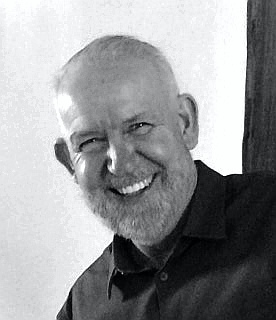
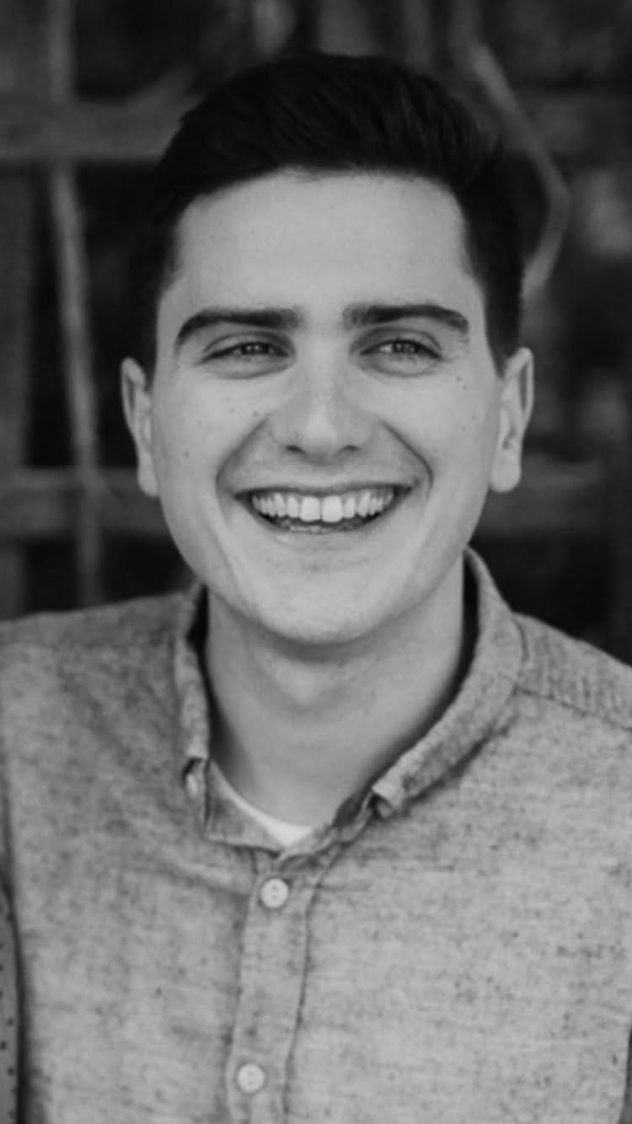

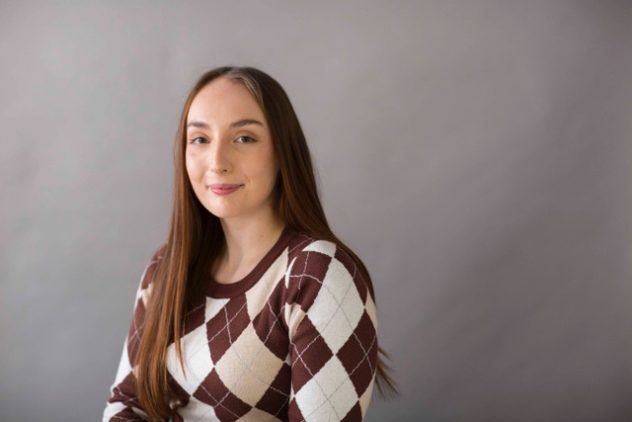




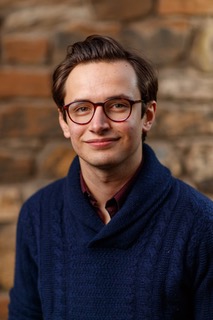
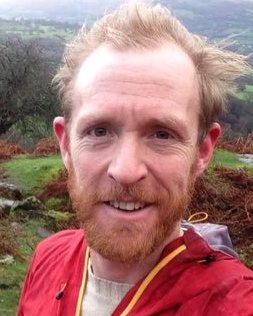
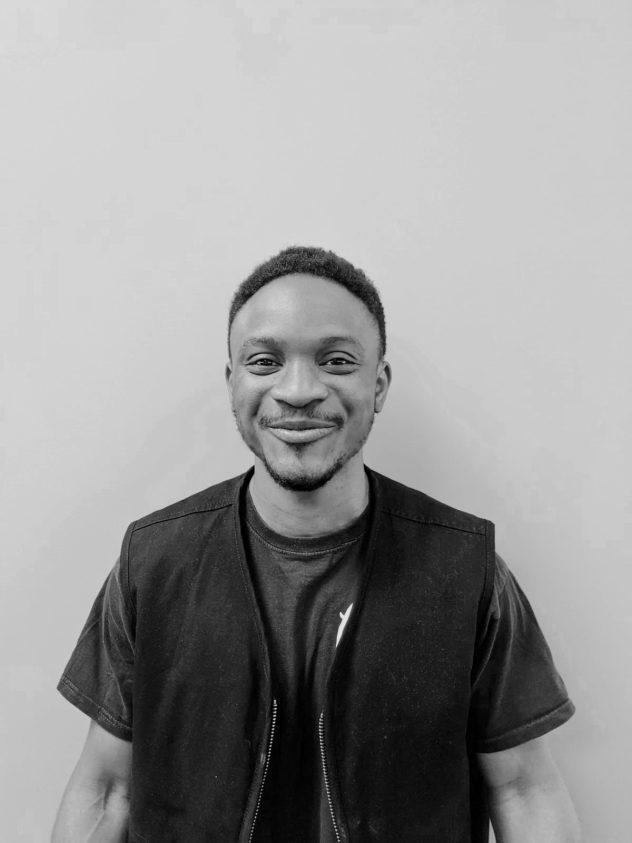


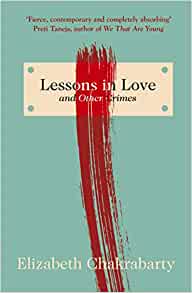




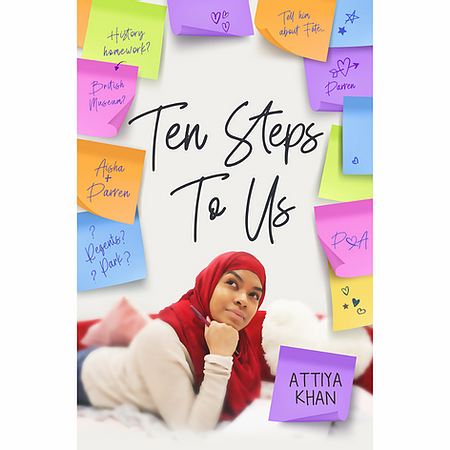



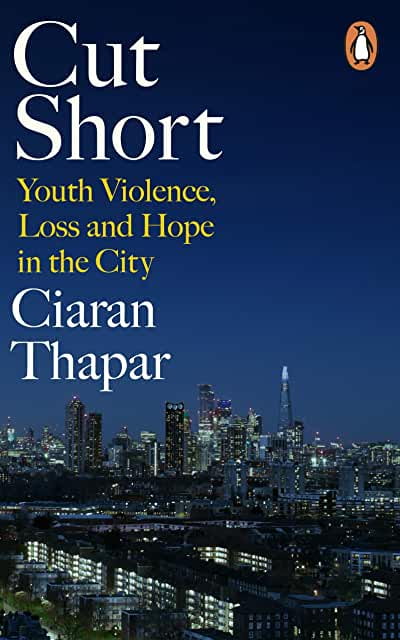

















Recent Comments